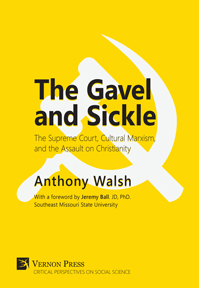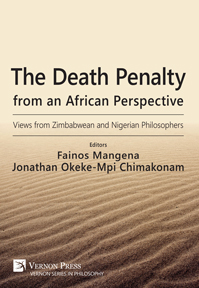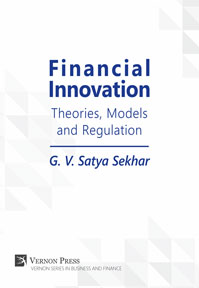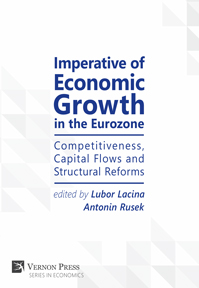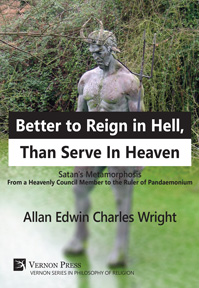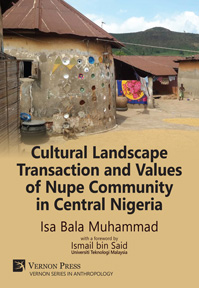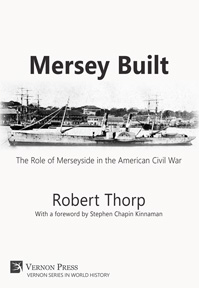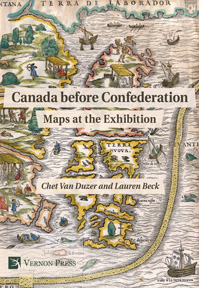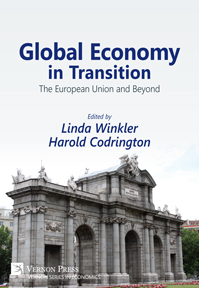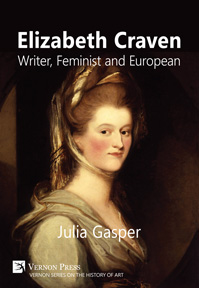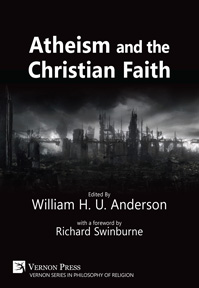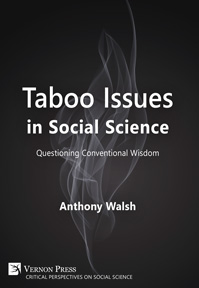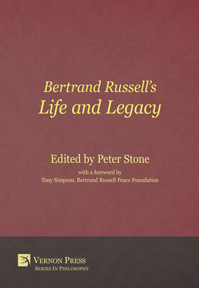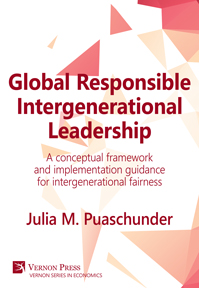Search
Browse
by Publication status
by Subject
Anthropology (28) Art (126) Business and Finance (27) Cognitive Science and Psychology (56) Communication and Journalism (49) Economics (63) Education (70) History (150) Human Geography (22) Interdisciplinary (43) Language and Linguistics (139) Law (16) Music Studies (19) Philosophy (162) Political Science and International Relations (105) Sociology (323) Statistics and Quantitative Methods (21)by Series
Series in Literary Studies (71) Series in Philosophy (59) Series in Education (55) Series in Sociology (46) Bridging Languages and Scholarship (33) Series in Politics (33) Series in World History (32) Series in Language and Linguistics (25) Series in Philosophy of Religion (22) Cognitive Science and Psychology (21) Series in American History (20) Critical Perspectives on Social Science (19) Series in Art (19) Series in Cinema and Culture (16) Series in Critical Media Studies (16) Curating and Interpreting Culture (15) Series in Anthropology (14) Series on the History of Art (14) Economics (14) Series in Business and Finance (13) Series in Music (12) Series in Communication (10) Series in Performing Arts (9) Philosophy of Personalism (8) Series in Law (8) Series on Climate Change and Society (8) Series in Economic Methodology (7) Women's Studies (7) Classics in Economics (6) Series in Economic Development (6) Philosophy of Forgiveness (5) Series in Built Environment (5) Series in Economic History (5) Series in Philosophy of Science (5) Series in Social Equality and Justice (5) Series on the History of Science (4) Serie En Estudios Literarios (3) Serie en Sociología (3) Series in Contemporary History (3) Series in Creative Writing Studies (3) Series in Design (3) The Interdisciplinary Built Environment (3) Serie en Comunicación y Medios (2) Serie en Historia (2) Serie en Música (2) Series in Heritage Studies (2) Series in Innovation Studies (2) Series in Philosophy of Race (2) Serie en Ciencias Políticas (1) Serie en Entorno Construido (1) Serie en Estudios Culturales (1) Serie en Filosofía (1) Serie en Filosofía de la Ciencia (1) Serie sobre Cambio Climático y Sociedad (1) Series in Classical Studies (1) Series in Economics of Technological Change (1) Series in Urban Studies (1)by Language
English Spanishby Author
The Gavel and Sickle: The Supreme Court, Cultural Marxism, and the Assault on Christianity
Anthony Walsh, Boise State University
Availability: In stock
258pp. ¦ $61 £50 €58
This book addresses the benefits of Christianity for all, the degradation of our culture since the 1950s, the pernicious effects that cultural Marxism has had on Western cultures, and the loss of religious freedom as the Founders envisioned it due to a number of Supreme Court rulings. We cannot understand the culture war and cultural debasement until we understand cultural Marxism. Cultural Marxism has been "hiding in plain sight" since the 1930s with the immigration to the United States of a cadre of intellectuals from Germany who brought with them the folderol of critical theory, political correctness, gender neutrality, radical feminism, and moral relativism. This intellectual moonshine is designed to weaken family structure and individual morality, and it has worked. The ultimate purpose of cultural Marxism is to destroy Western civilization from within. This goal is clearly and unambiguously stated in their books and articles. In numerous places in these books and articles, cultural Marxists are adamant that if socialism is ever to come to America the two epicenters of Western morality, the family and Christianity, will have to be destroyed by slow, stealthy, and incremental attacks on them. They have been aided in their efforts by anti-Christian rulings by the United States Supreme Court since the 1940s. I do not claim in any sense that the Supreme Court is engaged in a conspiracy with cultural Marxists. Their rulings have been based on a reading of the Establishment Clause of the First Amendment that its authors would not recognize, and have used this clause to eviscerate the Free Exercise Clause—America’s “first freedom.” The Court has purged Christianity from the public square, and in doing so it has unwittingly helped the cultural Marxist agenda by spiritually disarming America.
The Death Penalty from an African Perspective
Views from Zimbabwean and Nigerian Philosophers
Edited by
Jonathan O. Chimakonam, University of Pretoria, South Africa
and Fainos Mangena, University of Zimbabwe, Zimbabwe
Availability: In stock
252pp. ¦ $61 £50 €58
This book is about an African philosophical examination of the death penalty debate. In a 21st century world where the notion of human right is primed, this book considers the question of the death penalty in two sub-Saharan African countries namely, Zimbabwe and Nigeria, notorious for their poor human right records. This edited collection comprises of 11 essays from Zimbabwean and Nigerian philosophers. As opinions continue to divide over the retention or abolition of the death penalty, these African philosophers attempt to localise this debate by raising the following questions: What is the meaning of life in the African place? Is it proper to take the human life under any guise at all? Who has the right to take the human life? Can the death penalty be justified on the bases of African cultures? Why should it be abolished? Why should it be retained? Indeed, this book is the first of its kind to engage the tumultuous issue of capital punishment in the postcolonial Africa and from the African philosophical point of view.
Financial Innovation: Theories, Models and Regulation
G. V. Satya Sekhar, Gitam University, India
Availability: In stock
154pp. ¦ $55 £42 €47
Financial innovation is a regular feature of the global financial system. Financial innovation results in greater economic efficiency over time. In the process of creating a new financial product, besides basic theory of financial management, a financial engineer needs to acquire knowledge of optimization and financial modeling techniques. Modern financial innovation is underpinned by a rich literature including the seminal studies by Levich (1985), Smith, Smithson, and Wilford (1990), Verghese (1990), Merton (1992), Levine (1997), John D Finnerty (2002), Tufano (2003) and Draghi (2008), among many others. This book corresponds to the need to provide an integrated study on financial innovation and the economic regulatory mechanism. A key part of financial innovation covered in the book is the process of creating innovative financial securities and derivative pricing that offers new pay-offs to investors. The book also covers a selection of empirical studies corroborating financial innovation theories. It also exposes myths surrounding performance evaluation models. This book is presented in six chapters. The first chapter outlines important considerations on the application of financial innovation theories. The second chapter presents the theories that underpin financial innovation practice. The third chapter focuses on use of technology for financial modeling. The fourth chapter identifies the relationship between financial innovation and the wider economic system. The fifth chapter discusses the place of financial innovation in the global financial system. The sixth and final chapter presents a comparative analysis of India and the United States.
Imperative of Economic Growth in the Eurozone: Competitiveness, Capital Flows and Structural Reforms
Edited by
Antonin Rusek, Susquehanna University
and Lubor Lacina, Mendel University, Czech Republic
Availability: In stock
268pp. ¦ $62 £51 €58
European economic recovery appears to be taking hold. So is the European crisis over? The acute phase of the crisis passed, however a number of medium and long term issues remain. The policies of “internal devaluations” are working, albeit slowly, to restore competitiveness in the countries most affected by the crisis. However, growth remains at best sluggish. The medium and long term outlook remains highly uncertain, fomenting social tensions and endangering political stability. The restoration of economic dynamism is increasingly perceived as the answer to the question of the “European” future – economically, politically and socially. There is a broad consensus that dynamic structural reforms and the restoration of competitiveness at the level of the global economy are key answers to current European challenges. However, whatever the form these may take, the transfer of resources is implicit (and seemingly necessary), to underpin the current structure of eurozone. This indeed raises the question of governance – both fiscal and monetary. After all, the provision of resources implies an allocation – and it is hard to imagine that resources will be provided to the common pool unless the providers have some say with respect to allocation. And that requires some form of common (i.e. centralized) decision-making procedures, in all likelihood exceeding the common understanding of the acquis communautaire as it exists today – i.e. some form of the effective political arrangement. In this context, the basic idea which connects all contributions in this volume is the analysis of the problems which affected the Eurozone in the past decade and the challenges and dilemmas the Eurozone will face in the coming years.
Better to Reign in Hell, Than Serve In Heaven
Satan's Metamorphosis From a Heavenly Council Member to the Ruler of Pandaemonium
Allan Wright, University of Alberta
Availability: In stock
169pp. ¦ $57 £47 €54
In this monograph, I argue that Satan was not perceived as a universal malevolent deity, the embodiment of evil, or the “ruler of Pandemonium” within first century Christian literature or even within second and third century Christian discourses as some scholars have insisted. Instead, for early “Christian” authors, Satan represented a pejorative term used to describe terrestrial, tangible, and concrete social realities, perceived of as adversaries. To reach this conclusion, I explore the narrative character of Satan selectively within the Hebrew Bible, intertestamental literature, Mark, Matthew, Luke, Q, the Book of Revelation, the Nag Hammadi texts, and the Ante-Nicene fathers. I argue that certain scholars’ such as Jeffrey Burton Russell, Miguel A. De La Torre, Albert Hernandez, Peter Stanford, Paul Carus, and Gerd Theissen, homogenized reconstructions of the “New Testament Satan” as the universalized incarnation of evil and that God’s absolute cosmic enemy is absent from early Christian orthodox literature, such as Mark, Matthew, Luke, Q, the Book of Revelation, and certain writings from the Ante-Nicene Fathers. Using Jonathan Z. Smith’s essay Here, There, and Anywhere, I suggest that the cosmic dualist approach to Satan as God’s absolute cosmic enemy resulted from the changing social topography of the early fourth century where Christian “insider” and “outsider” adversaries were diminishing. With these threats fading, early Christians universalized a perceived chaotic cosmic enemy, namely Satan, being influenced by the Gnostic demiurge, who disrupts God’s terrestrial and cosmic order. Therefore, Satan transitioned from a “here,” “insider,” and “there,” “outsider,” threat to a universal “anywhere” threat. This study could be employed as a characterization study, New Testament theory and application for classroom references or research purposes.
Cultural Landscape Transaction and Values of Nupe Community in Central Nigeria
Isa Bala Muhammad, Federal University of Technology Minna, Nigeria
Availability: In stock
122pp. ¦ $53 £43 €50
The book provides readers with insights on how cultural landscapes are conceptualised under two major realms of tangible and intangible values as exemplified in this study of a rural Nupe community in central Nigeria. Equally important are the people-space and place relationship which results in a sense of place. The cultural values of communities are a product of both natural as well as the social setting which begins with the family. Accordingly, this book showcases how the concept of family structure shapes the architecture of the domestic space. Similarly, it also exemplifies how tangible and intangible cultural values are constituted within the domestic space as well as the entire cultural landscape. The uniqueness of this book is on the empirical evidence which is based on the documentation of an eight-month ethnographic study which brought about the native’s resident perception of their cultural landscape. This aligns with the global call in which UNESCO is at the forefront advocating the need for the preservation of values and identities of cultural landscapes. More also is that scholars in Human geography, Anthropology, Ethnography, Architecture and Cultural landscape studies can relate to the cultural transactions discussed in different chapters this book. The concluding chapter of this book gives the deductions drawn from the cultural landscape values of Nupe community which resulted in the formulation of Grounded Theory with spatial implications.
Mersey Built: The Role of Merseyside in the American Civil War
June 2017 / ISBN: 978-1-62273-281-4Availability: In stock
448pp. ¦ $70 £57 €66
‘Mersey Built’ chronicles the little-known commercial battle that raged between North and South during the American Civil War. The South relied on Europe for its military supplies, which the North tried to stop with a naval blockade of all Southern ports. The South retaliated by destroying Northern merchant ships on the high seas, using war ships, secretly procured from British shipyards and smuggled out of Britain by sympathetic British captains using British crews. The Charleston-based business empire headed by George Trenholm provided a conduit for Confederate finance with its Liverpool branch acting as bankers for the Confederacy’s procurement agents. Merseyside, with its extensive docks and numerous shipyards quickly became the epicenter of Confederate operations in Europe. Several British businessmen bought ships specifically to run supplies through the Union blockade, leaving relationships between the United States and Britain strained, close to breaking point. The book relates the history of Trenholm’s commercial empire, its pre-war expansion into Liverpool and the pivotal role it played in supporting the Confederate war effort. The involvement of other Liverpool-based entrepreneurs and their successes and failures in blockade-running is described. Background histories of the Merseyside ship builders who constructed warships and blockade runners for the Confederacy are included as well as several mini-biographies of the Liverpool-based captains who smuggled out warships and braved the Union blockade. Details of each ship built on Merseyside for involvement in the Civil War are listed. The role of the United States consular service and its extensive, Liverpool-based, spy ring is described, as are the efforts of the United States ambassador in London to influence British government policy on neutrality. The author, a direct descendant of a Liverpool ship builder, and a blockade-running captain, brings new insights and previously unpublished facts to light in this fascinating chapter of history.
Mersey Built: The Role of Merseyside in the American Civil War
July 2017 / ISBN: 978-1-62273-280-7Availability: In stock
448pp. [Color] ¦ $105 £86 €99
‘Mersey Built’ chronicles the little-known commercial battle that raged between North and South during the American Civil War. The South relied on Europe for its military supplies, which the North tried to stop with a naval blockade of all Southern ports. The South retaliated by destroying Northern merchant ships on the high seas, using war ships, secretly procured from British shipyards and smuggled out of Britain by sympathetic British captains using British crews. The Charleston-based business empire headed by George Trenholm provided a conduit for Confederate finance with its Liverpool branch acting as bankers for the Confederacy’s procurement agents. Merseyside, with its extensive docks and numerous shipyards quickly became the epicenter of Confederate operations in Europe. Several British businessmen bought ships specifically to run supplies through the Union blockade, leaving relationships between the United States and Britain strained, close to breaking point. The book relates the history of Trenholm’s commercial empire, its pre-war expansion into Liverpool and the pivotal role it played in supporting the Confederate war effort. The involvement of other Liverpool-based entrepreneurs and their successes and failures in blockade-running is described. Background histories of the Merseyside ship builders who constructed warships and blockade runners for the Confederacy are included as well as several mini-biographies of the Liverpool-based captains who smuggled out warships and braved the Union blockade. Details of each ship built on Merseyside for involvement in the Civil War are listed. The role of the United States consular service and its extensive, Liverpool-based, spy ring is described, as are the efforts of the United States ambassador in London to influence British government policy on neutrality. The author, a direct descendant of a Liverpool ship builder, and a blockade-running captain, brings new insights and previously unpublished facts to light in this fascinating chapter of history.
Relearning History
A Question-Driven Approach to the Study of the Past
August 2017 / ISBN: 978-1-62273-253-1Availability: In stock
239pp. ¦ $49 £40 €46
For many students, the traditional approach to the study of history does not work. The litany of facts arranged in a chronological sequence often turns out to be mind numbing and forgettable. In addition, they see little relevance between the past and the world they live in today. Relearning History was written for those students. Instead of reviewing the traditional time line of the past, the focus is directed at questions relevant to the present. Why does the two-party system dominate American politics? Why is wealth so unevenly distributed? Why does race and gender still play such a large role in modern society? Why has there never been a World War Three? These “why” questions, along with 11 others, serve as the foundation for a discussion of history so that the study of the past is inexorably linked to a enhanced understanding of the present. Students who are currently enrolled in history classes can use Relearning History to supplement and enrich the traditional curriculum. Some may even want to use it in place of the traditional curriculum. As for those adults who have completed their formal education and never learned much in their earlier history classes, this book will give them the chance to finally study history in a meaningful manner.
Canada before Confederation: Maps at the Exhibition
Chet Van Duzer, Library of Congress
and Lauren Beck, Mount Allison University
Availability: In stock
272pp. [Color] ¦ $85 £70 €80
Each of the maps featured in this book was showcased in the exhibition “Canada before Confederation: Early Exploration and Mapping,” which took place in several locations, both in Canada and abroad, in Fall of 2017. The authors provide a scholarly study highlighting the importance and unique features of each of these jewels of cartographic history, with particular attention paid to how they demonstrate the development of Canadian identity at the same time that they reveal Indigenous knowledge of the lands now known as Canada.
Applied Economics for Development: Empirical Approaches to Selected Social and Economic Issues in Transition Economies
Edited by
Mahmut Zortuk, Dumlupınar University, Turkey
Availability: In stock
276pp. ¦ $85 £60 €77
Transition economies experience transformation of their economic system. Following the disintegration of the Soviet Union, a number of former socialist countries underwent transitions from central planning to a market economy. More generally, many rapidly growing economies undergo no less profound transformations of their economic systems. Contrary to common misconception, the transition process cannot be simply reduced to eliminating state intervention and liberalizing the economy. Economies under transition exhibit a unique set of policy challenges. Unlike developed market economies, missing markets or market failures abound. Economic transformation takes the form of rapidly evolving patterns of international trade and investment, industrial structure and consumption. These changes call for appropriate public policies. A continuing flow of investment hinges on suitable institutions, the provision of public infrastructure and other public goods. Adequate regulation can be central in ensuring that environmental resources are sustainably managed. And sophisticated production systems, call for corresponding social institutions in terms of education, health and welfare provisions. In all these cases, accurate empirical assessments are central to the design of effective policy. This book presents a selection of pressing economic and social issues in transition economies. Selected issues include the development of particular industrial sectors, the drivers and consequences of foreign direct investment, public finances, urbanization, social indicators, environmental policy and energy diversification. In each case an original empirical analysis is performed, using a variety of advanced quantitative methods, applied to recent data. The book will be of interest to economists studying transition economies, economic development or having a general interest in applied economics. It will be of particular interest to applied economists, policy analysts and policy makers in transition economies, concerned with the shape and direction of appropriate economic reforms.
Global Economy in Transition: the European Union and Beyond
Edited by
Linda Winkler, Wilkes University
and Harold Codrington, Central Bank of Barbados
Availability: In stock
260pp. ¦ $75 £68 €73
This volume covers various issues in global development and global economic transformation including factors affecting economies and development in the European Union (EU), the Ukraine, select countries in Africa, the Caribbean, the South Pacific as well as India and the United States. The global economy is in transition, from the 1990s' status quo to the “new normal” with heavy reliance on the internet, rapid communications, sophisticated payment systems, diminishing importance of size and distance and changing notions of the market. This volume discusses how this process is affecting economies across the globe and why an appreciation of it will help efforts by governmental bodies and the private sector to reassess societal relationships - both economic and political. This volume shows that challenges to policy-making and the achievement of social consensus on development issues are often quite similar in all countries, irrespective of size, geographical location, endowment and developmental status. The chapters speak to concerns that touch on a cross-section of issues which are driving transition and transformation at multiple levels. As a group, they compare economic factors across transnational economic or political associations (OECD, European Union, G20) or make comparisons across or within emerging markets or small states (BRICS, various African countries, the Caribbean, South Pacific). They include the presentation of a new model for transnational agreements, discussions of policies related to labor compensation and corporate governance, comparisons of nations across the world using indices of economic development and governance, an analysis of gender inequality in employment in the European Union, comparisons of tax burdens across the European Union and the USA, discussions of employee representation in corporate governance, and a look at grass-roots development and markets in developing economies. As a whole, in its breadth and cross-national perspective, the volume represents an important scholarly contribution to international economics.
Elizabeth Craven: Writer, Feminist and European
July 2017 / ISBN: 978-1-62273-275-3Availability: In stock
334pp. ¦ $65 £55 €62
Elizabeth Craven’s fascinating life was full of travel, love-affairs and scandals but this biography, the first to appear for a century, is the only one to focus on her as a writer and draw attention to the full range of her output, which raises her stature as an author considerably. Born into the upper class of Georgian England, she was pushed into marriage at sixteen to Lord Craven and became a celebrated society hostess and beauty, as well as mother to seven children. Though acutely conscious of her relative lack of education, as a woman, she ventured into writing poetry, stories and plays. Incompatibility and infidelities on both sides ended her marriage and she had to move to France where, living in seclusion, she wrote the little-known feminist work Letters to Her Son. In the years that followed, she travelled extensively all over Europe and turned her letters into a travelogue which is one of her best-known works. On her return she went to live in Germany as the companion and eventually second wife of the Margrave of Ansbach. At his court she organised and appeared in theatricals, and wrote several more plays of great interest, including The Modern Philosopher. In 1792 she and the Margrave settled in England, where they were never fully accepted by the more strait-laced pillars of society but mixed with all the musicians and actors and the more rakish of the Regency set. Craven continued to put on her own theatricals and write for the theatre. In her old age, she moved to Naples where she passed her time sailing, gardening and writing her Memoirs. Even in her final years, scandal dogged her, and Craven made her feminist principles and criticisms of the laws of marriage apparent through her involvement in the notorious divorce case of Queen Caroline.
Beyond Realism: Seeking the Divine Other
A Study in Applied Metaphysics
Simon Smith, University of Surrey
Availability: In stock
342pp. ¦ $65 £55 €60
The meaning of “God-talk” remains the fundamental issue facing religious thinkers today. This study concerns the analogies needed to make sense of that talk. Embracing those analogies signals the application of Austin Farrer’s cutting-edge theology. Almost fifty years after his death, Farrer remains one of the twentieth century’s last great metaphysical minds, his grasp of faith and philosophy unequalled. Having defended religious thought against both Positivist and Process reduction, he pursued his own revision of scholastic tradition, ultimately developing the vital corrective to an overweening impersonalism, one which depersonalises the divine so severs the cosmological connection. Following this course returns us to an earlier tradition, to a metaphysic of persons exemplified in the expressions of lived faith. This draws upon the logic of personal identity: what it means to be, or rather, to become, a person. Hence, journey’s end lies in a Feuerbachian anthropology of theology or ‘anthropotheism’. Like Farrer, Feuerbach used the believer’s language to relocate theology and philosophy within a framework that makes fertile use of anthropomorphic personifications to ‘think’ God. Revisiting the personalist presuppositions of metaphysics in this way throws light on the most vital questions of personal identity. To answer them is to ‘draw’ reality on a grander scale than either realism or consequentialism is capable of. Most importantly, it is locate our place within that image. Doing theology dynamically or psychologically informed – as both Farrer and Feuerbach insisted – means recognising the constitutive role such images play in self-construction. Without active participation in our ideals and aspirations, we cannot become persons at all; participation entails the enactment of our prospective selves. This returns us to the practice of piety: faith in a Godly person. Here we find the reconstruction of Feuerbach’s anthropology as applied theology and, by extension or amplification, the completion of Farrer’s personalist metaphysics.
Atheism and the Christian Faith
Edited by
William H. U. Anderson, Concordia University of Edmonton in Alberta
Availability: In stock
224pp. ¦ $70 £60 €67
Atheism and the Christian Faith is an anthology of the proceedings from a conference of the same name which convened at Concordia University of Edmonton in May 2016. The book represents a wide diversity of subtopics—primarily from a philosophical perspective—including submissions from atheists, agnostics and theists. This combination of topics and perspectives makes the book totally unique. There are arguments for and against theism. The foreword to the book is by Professor Richard Swinburne, Professor Emeritus of Philosophy at Oxford University, who contributes two chapters to the book: “Why Believe That There is a God?” and “Why God Allows Suffering”. The book includes a chapter from renowned astrophysicist, and former student of Stephen Hawkins, Professor Dr. Don Page from the University of Alberta “On the Optimal Argument for the Existence of God”. Atheism and the Christian Faith advances arguments around serious philosophical issues of direct relevance to contemporary society. It will be of interest to a broad range of scholars in philosophy, theology and epistemology.
The Ideas, Identity and Art of Daniel Spoerri
Contingencies and Encounters of an ‘Artistic Animator’
Leda Cempellin, South Dakota State University
Availability: In stock
256pp. ¦ $58 £50 €55
The term “artistic animator” is inspired by the definition “Kunstanimator” given to Spoerri by his longstanding friend Karl Gerstner during an interview with Katerina Vatsella in 1995. Wherever he went, Spoerri was capable of inspiring others to make art, and at the same time he absorbed, interiorized and transformed ideas from others. His fluctuating memberships during late Modernism (Zero, Nouveau Réalisme, Fluxus, Mail Art) explain why some areas of this work have not yet received their due attention and their connection to the whole picture has often eluded scholarly inquiry. Beyond his tableaux-pièges, which gave him immediate notoriety through an early purchase by the MoMA, Spoerri discovered a new way to approach the multiples in sculpture (Edition MAT), he transformed his trap pictures into an experimental narrative form (Topographie Anécdotée du Hasard), he initiated the Eat Art movement, he tested an innovative curatorial approach (the Musée Sentimental and the Giardino). Despite constant interruptions due to his semi-nomadic lifestyle, this oeuvre presents an extraordinary coherence, where none of these ventures can be properly understood without considering all the others. This is the first monograph entirely devoted to Daniel Spoerri in the United States to date. With an introduction by Barbara Räderscheidt.
Neither Capital, Nor Class
A Critical Analysis Of Pierre Bourdieu's Theoretical Framework
Jacek Tittenbrun, University of Poznan, Poland
Availability: In stock
366pp. ¦ $75 £65 €72
This book offers an in-depth examination of Pierre Bourdieu's theoretical framework. The book is not just a collection of more or less critical remarks but constitutes a coherent whole, underpinned by an original analytical framework. This conceptual apparatus makes it possible to present some alternative solutions to the theoretical problems under consideration. The book goes largely against the grain of views that are dominant in the literature on Bourdieu. Therefore, its conclusions may be surprising to many a reader. The book demonstrates that Bourdieu's well-known theory of 'capital' forms is untenable, resembling more an illegitimate metaphor rather than a scientific concept. In a similar vein, the Bourdesian class theory should be largely regarded as a variant of social stratification rather than class. There are many theoretical and empirical problems with Bourdieu's theory of social and cultural reproduction as well. There is more to the above criticisms than meets the eye. The point is that many weaknesses of Bourdieu's style of theorising seem to stem from his intellectual dependence upon structuralism, especially in Claude Lévi-Strauss' version. It is this affinity that accounts for such features of Bourdieu's approach as its essentialism, formalism and epistemic idealism. The book will be of interest primarily to students of Bourdieu's many and varied contributions to social theory. In view of Bourdieu's immense influence, it will also hold interest to critical scholars in political science, economic sociology and political philosophy.
Taboo Issues in Social Science
Questioning Conventional Wisdom
Anthony Walsh, Boise State University
Availability: In stock
310pp. ¦ $78 £70 €75
This book is an expedition into a number of controversial issues in the social sciences with the intention of challenging the conventional wisdom on those issues. While most social science research is interesting and important, a fair amount of social science research is thinly disguised advocacy research in which conclusions too often precede inquiries. The primary topics are those that the journal Nature described as "Taboo". In order of the degree of censure, the topics are: race, sex differences, intelligence, and violence. The only way to examine these topics with the social science seal of approval attached is through a strictly environmental lens. To bring biological factors to bear on them is politically incorrect and can bring the wrath of the academy down on one’s head. Although many researchers successfully bring biology into their research on these issues, they are said to risk career and reputation for doing so. Speech codes stifling free intellectual exchange pervade the ivory tower, and an overwhelmingly liberal faculty hell-bent on eliminating any vestiges of opposition to their ideology. This is unconscionable in an institution that is supposed to value free exchange of all ideas and opinions. The current state of academic social science is examined before entering the substantive realm to try to explore how the topics I explore have become protected from any claims of "naturalness." Because the left rejects the idea of human nature, it insists that these things are products of social learning and/or social construction and are entirely fluid. To maintain this position in light of the huge and exponential successes of the natural sciences, the left embraces such frames of reasoning as postmodernism, radical relativism, multiculturalism, and political correctness, all of which are examined in this book. Also discussed are human nature, whiteness studies, political temperaments, various criminal justice issues, and capitalism versus socialism.
Bertrand Russell’s Life and Legacy
Edited by
Peter Stone, Trinity College Dublin, Ireland
Availability: In stock
214pp. ¦ $60 £49 €57
Almost five decades after his death, there is still ample reason to pay attention to the life and legacy of Bertrand Russell. This is true not only because of his role as one of the founders of analytic philosophy, but also because of his important place in twentieth-century history as an educator, public intellectual, critic of organized religion, humanist, and peace activist. The papers in this anthology explore Russell’s life and legacy from a wide variety of perspectives. This is altogether fitting, given the many-sided nature of Russell, his life, and his work. The first section of the book considers Russell the man, and draws lessons from Russell’s complicated personal life. The second examines Russell the philosopher, and the philosophical world within which his work was embedded. The third scrutinizes Russell the atheist and critic of organized religion, inquiring which parts of his critical stance are worth emulating today. The final section revisits Russell the political activist; it directs an eye both at Russell’s own long career of peace activism, but also at his place in a highly political family tradition of which he was justifiably proud. This book thus constitutes an invitation, if one were needed, to the world of Bertrand Russell. Those new to Russell, but with an interest in biography, philosophy, religion, or politics, will hopefully find something to learn here. This may spark an interest in learning more about Russell. But this book is not just intended for the Russell neophyte. The book sheds fresh light on a number of topics central to Russell studies—his connections to other philosophers, for example. Scholars well-versed in Russell studies will enjoy grappling with the treatment given to these topics here.
Global Responsible Intergenerational Leadership
A conceptual framework and implementation guidance for intergenerational fairness
Julia M. Puaschunder, The New School
Availability: In stock
154pp. ¦ $65 £54 €61
Today's grand policy dilemmas, from climate change, to over-indebtedness, to demographic shifts, have momentous long-term implications. Future generations will be constrained by our present decisions to an extent that is without precedent in advanced capitalist democracies. This book is an extensively researched and reasoned appeal in favor of intergenerational fairness - the ability to provide to future generations an at least as favorable standard of living as that enjoyed today. Intergenerational equity is an essential consideration in finding lasting solutions to the multifaceted crises of our time. As an implicit contract and transfer between living and future generations, intergenerational equity avoids discriminating against future generations. The book aims to theoretically define intergenerational equity and to frame it as a natural behavioral law, capturing human ethicality bounds. It follows a long and distinguished tradition of scholarly discourse in turning to natural law for solutions to major social predicaments. Outlining some of the causes of the current intergenerational imbalances regarding climate change and over-indebtedness it sets the basis for understanding their drivers and implications. A central proposition is that the natural human drive towards intergenerational fairness can be the basis for the necessary behavioral responses: the human-imbued moral compass of natural law can be a useful complement, if not alternative, to public policy. This book fills an important gap. Despite a resurgence of literature, the economic and social dimensions of intergenerational equity remain underexplored. Existing literature misses a holistic ethical framework of decision-making failures that addresses intergenerational concerns. Whilst evolutionary grounded, intergenerational fairness has not been recognized as a natural behavioral law – a human-imbued drive being bound by human fallibility. Practical implications and recommendations in advancing an agenda for the advancement of intergenerational equity are provided. Attention is drawn to the problem of providing the required leadership to promote the idea of intergenerational equity as a guiding principle in corporate, social and policy action. This book contributes both theoretical and practical insights and will be of interest to economists, sociologists, public policy makers and corporate executives tasked with tackling the most pressing contemporary challenges of mankind.

